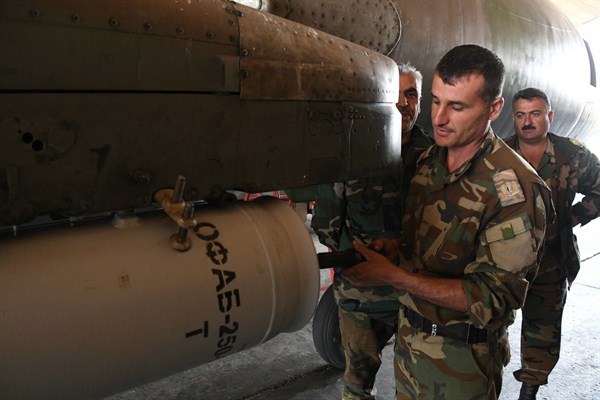The U.S. missile attack on the Syrian airbase from which the devastating chemical weapons attack on Khan Sheikhoun had been launched was a clear win for the Trump administration on several fronts. It doesn’t, however, guarantee a successful new Syria strategy, for reasons related to the nature of the conflict there and the leadership dynamics in Washington. It’s still worth considering how to make the modest intervention a more transformative event.
President Donald Trump’s quick decision to launch cruise missiles against a Syrian airbase early Friday, in retaliation for Syria’s presumed use of sarin gas against residents of the opposition-held Khan Sheikhoun on April 4, brought considerable satisfaction to the administration. It was a clear demonstration of American power that also had the element of surprise. There was considerable damage to the airbase, although it can still be used, and the targeting intentionally avoided a large warehouse of chemical weapons to prevent further spread of the lethal agents.
The attack rallied support from establishment Republicans who have been worried about Trump’s casual approach to national security, and even from some liberal interventionist Democrats, who had long hoped former President Barack Obama would be more assertive in responding to Syrian atrocities. European allies and major Arab states were also pleased with the U.S. action, with a sense of relief on display after a period of pent-up demand for a more forceful American policy in Syria and some signal that the U.S. was not retreating from its global responsibilities. Sharp rebukes from Moscow, Tehran and Damascus probably added to the Trump team’s satisfaction.

